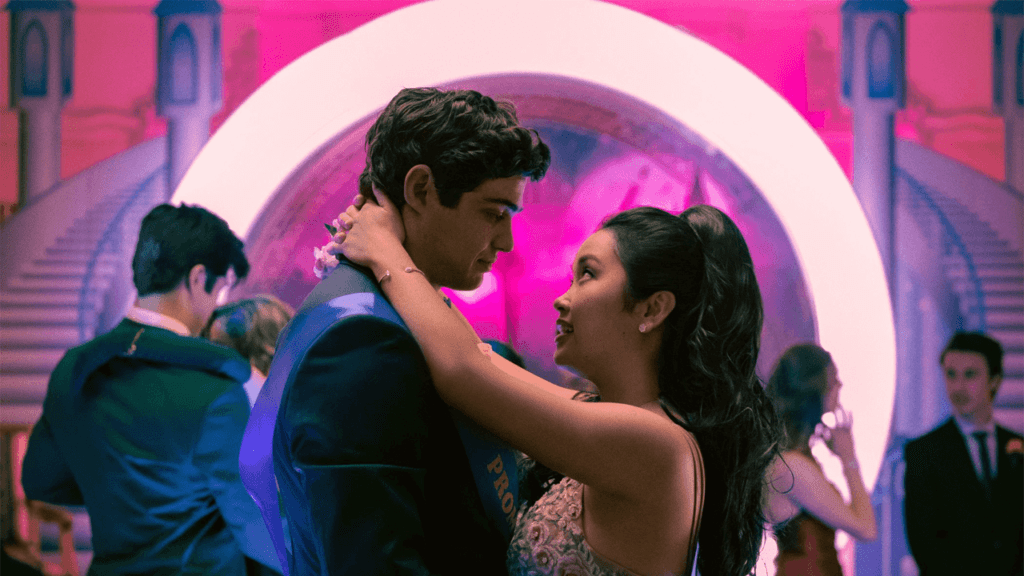Summary
To All the Boys: Always and Forever says farewell to today’s most likeable YA cast with enough charm and earnestness to remind you of why the original was such a mega-hit.
I’m an unashamed, unapologetic advocate of Netflix’s To All the Boys I’ve Loved Before, an adaptation of Jenny Han’s YA novel that simultaneously launched the careers of Lana Condor (Boo, Bitch) and Noah Centineo (as seen in The Perfect Date, The Recruit) and made life exceedingly difficult for the platform’s other offerings in the genre.
I have serious questions for anyone who prefers, say, The Kissing Booth over this, which is the same sort of uplifting young-love-conquers-all affair but without the crackling chemistry, smart writing (Katie Lovejoy [also behind Love at First Sight] did the screenplays alongside Han), and absurdly likable performances that have always made the romantic travails of Lara Jean Song Covey (Condor) and Peter Kavinsky (Centineo) stand out from the crowd.
Two sequels, To All the Boys: P.S. I Still Love You (which I liked more than most) and now To All The Boys: Always and Forever, were filmed back-to-back but released a year or so apart.
People were down on the awkward middle child because it floated the idea of a love triangle that didn’t really take; the appeal of Lara Jean and Peter’s relationship has always been sincerity, despite their differences (she’s bookish, he’s a jock).
For those people, Always and Forever should be a welcome return to form, since it doesn’t expect us to buy into the idea that anyone could ever be quite as charming as Peter. It does, though, suggest that something that neither of them foresaw might be their downfall – distance.
When Michael Fimognari’s (also behind The Fall of the House of Usher) film picks up with Lara Jean and Peter separated – she’s in Seoul with her family for Spring Break – it’s a sign of things to come. Graduation is right around the corner and so, by extension, is college.
Lara Jean has it all planned out. Peter is going to Stanford for lacrosse, and she’ll enroll in their English lit program, and they’ll hold hands while riding bikes and wear tree hats to football games, even though she doesn’t like football. She imagines a montage of happiness that includes marriage and picking up the keys to their first home and then has to imagine it all in reverse when it turns out she didn’t get into Stanford after all.
Nobody should care about any of this. But To All the Boys: Always and Forever does what the previous films did and roots us so completely in the headspace of the leads that their emotional anxieties take on outsized proportions. Everything’s a matter of life or death, even if no lives are at stake at all; every decision is a potential calamity, every thought and feeling is monumental.
In all this turmoil, Condor and Centineo both prove once again that they have the goods, playing romantic and understanding all the way up until the pressure gets too much and they have to play heartbroken and lost. Neither comes off badly, even at their most emotionally vulnerable, which is why this threequel works in much the same way as the original did.
But this isn’t a re-tread. The college admissions process is a fitting new obstacle more symbolic of the turning point in their lives that these characters are approaching, and the film builds on what has come before in various ways. Lara Jean’s younger comic relief sister Kitty (Anna Cathcart – who has her own spin-off XO, Kitty) is dealing with a long-distance relationship of her own, and their doting father, Dr. Covey (John Corbett), is getting hitched to their neighbor, Trina (Sarayu Blue – voice cast in Velma).
Lara Jean’s best friend Chris (Madeleine Arthur – as seen in Devil in Ohio) is taking a gap year, and the only person she knows who is going to school in the New York City she falls in love with during a class trip is Gen (Emilija Baranac – as seen in Fakes), her former love rival. After three films, all these people feel like they have many more layers than they began with, which helps to give the story a lived-in texture.
You could make the argument that To All the Boys: Always and Forever is coasting a little on that nostalgia, and there’s no real sense that it won’t hit every expected beat along the way to a perfunctorily happy ending. But you also have to wonder what else anyone watching this would be expecting. It’s hearty comfort food at a time when audiences are eager to gobble that kind of thing up. Maybe young love prevailing is what we all need to see.




